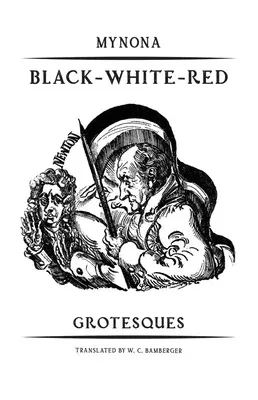Mynona's self-styled "grotesques" inhabit an uncertain ground between
fairy tale, fetishism and philosophy, satirizing everything from
nationalism to philanthropy
First published in German in 1916, Black-White-Red collects six
bizarre tales by the "laughing philosopher" Salomo Friedlaender, who
wrote his literary work under the pseudonym Mynona (the reversed German
word for "anonymous"). In this collection, we encounter a
tongue-in-cheek showdown between Goethe and Newton, whose theories of
color clash in the form of a nationalistic flag; another story presents
the inventor of the tactilestylus setting out to capture the residual
sound waves of Goethe speaking in his study through a mechanical
recreation of his vocal apparatus, with its amplification set to
infinite. In "The Magic Egg," one of Mynona's most emblematic and
curious tales, a man encounters an enormous bisecting mechanical egg in
the middle of the desert that houses a mummy and a possible pathway to
utopia on Earth.
Mynona, aka Salomo Friedlaender (1871-1946), was a perfectly
functioning split personality: a serious philosopher by day (author of
Friedrich Nietzsche: An Intellectual Biography and Kant for Kids)
and a literary absurdist by night, who composed black humored tales he
called "grotesques." He inhabited the margins of German Expressionism
and Dada, and his friends and fans included Martin Buber, Walter
Benjamin and Karl Kraus.

